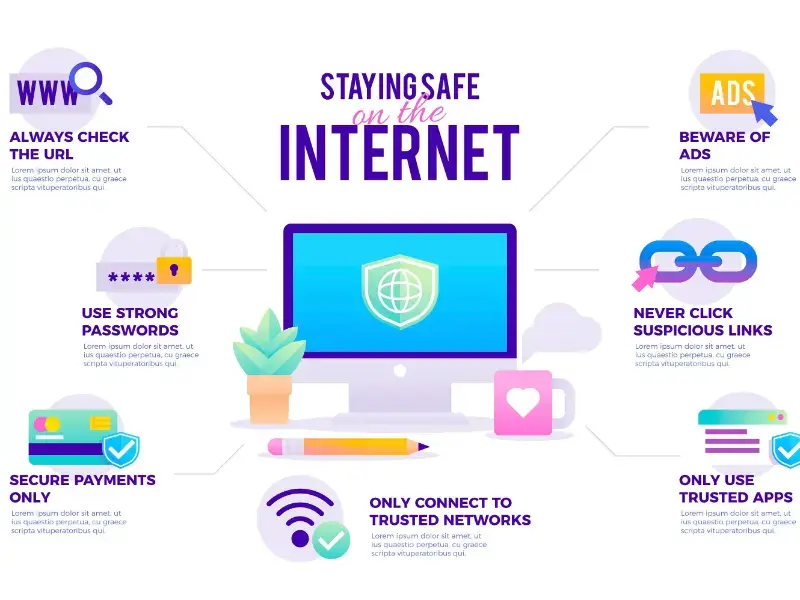- Law enforcement refers to the system and individuals responsible for maintaining public order, enforcing laws, preventing and investigating crimes, and ensuring the safety and security of communities.
- Internet activity encompasses all actions and behaviors performed by individuals, organisations, or devices while connected to the internet.
- The interaction between internet activity and law enforcement is multifaceted and complex. As more aspects of daily life move online, law enforcement agencies increasingly rely on monitoring internet activity to prevent and investigate various types of crimes.
Internet activity refers to any action or behavior performed by individuals, organisations, or devices while connected to the internet. This can include a wide range of activities such as browsing websites, sending and receiving emails, downloading or uploading files, streaming videos or music, participating in online forums or social media platforms, online shopping, online gaming, accessing cloud services, and much more.
Law enforcement agencies employ various techniques and tools to monitor and track internet activity, including digital forensics, data analysis, surveillance, and collaboration with internet service providers and technology companies. They may also work with international partners to address cross-border cyber threats.
Ensure public safety
Preventing crime
Monitoring internet activity allows law enforcement agencies to identify and prevent criminal activities such as terrorism, cybercrime, human trafficking, and child exploitation. By tracking online communications and behaviors, they can intervene before crimes occur or identify suspects after the fact.
Investigating crimes
The internet is often used as a tool for planning and executing criminal activities. Law enforcement agencies monitor online activities to gather evidence, track down suspects, and build cases against individuals or groups involved in illegal activities.
Cybersecurity
Monitoring internet activity helps protect against cyber threats such as hacking, malware, and phishing attacks. Law enforcement agencies work to identify and neutralise cyber threats that pose risks to individuals, businesses, and critical infrastructure.
Public safety
Monitoring internet activity can help identify individuals who pose a threat to public safety, such as those expressing violent intentions or engaging in hate speech or extremist ideologies online.
Intellectual property protection
The internet is a significant tool for terrorist organisations to recruit, communicate, and plan attacks. Law enforcement monitors online activity to identify and disrupt terrorist networks, prevent radicaliation, and thwart terrorist plots.
Also read: How to build an internet server?
Important of interaction
Early detection of threats
By monitoring online communications and activities, law enforcement can detect potential threats to public safety and national security at an early stage, enabling proactive intervention to mitigate risks and prevent harm.
Monitoring internet activity provides law enforcement with valuable evidence for investigations and prosecutions. Digital evidence obtained from online communications, social media posts, and other online activities can be instrumental in building strong cases against criminals and securing convictions in court.
Also read: How to protect the ‘internet of things’?
Intelligence gathering
Monitoring internet activity allows law enforcement to gather intelligence on criminal networks, organisations, and individuals involved in illegal activities. This intelligence can be used to disrupt criminal operations, dismantle criminal networks, and prevent future crimes.
Enhancing public safety
Monitoring internet activity contributes to enhancing overall public safety by identifying and addressing emerging threats and risks in cyberspace. This proactive approach helps safeguard communities from various online dangers and ensures a safer online environment for everyone.

